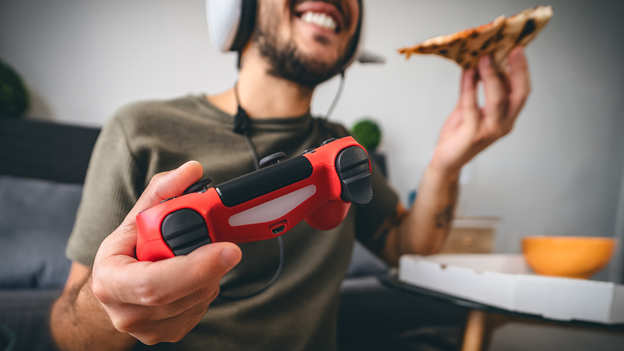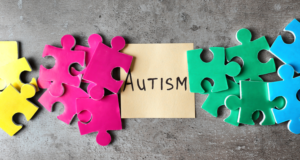What Does Recovery From Video Game Addiction Look Like?

Beginning a treatment to remove the thing you love most can be a scary idea in the best of times. But what makes many people hesitant is fear of the unknown. Fear of what it would be like to give up their addictive behaviour. So, in this article, we are going to explain what it’s like to recover from video game addiction to give you an idea of what to expect on your journey to recovery.
Content
Methods of Treatment

Before we jump straight into what the recovering addict experiences, we should become familiar with the most common forms of video game addiction treatment so that you’re not caught off guard by these concepts when you decide to cut down.
Cognitive Behavioural Therapy
CBT is the main form of treatment when it comes to behavioural addictions. CBT is based around the principle that the way we think, feel and act are intimately linked. By changing our thoughts into healthier thinking patterns our behaviour and the way we feel will subsequently follow.
Oftentimes the addictive behaviour conditions us to think negative thoughts and provoke negative feelings. The addict chooses to escape through the addictive behaviour in a repetitive loop despite knowing the behaviour is bad for them.
CBT incorporates many different psychological techniques such as Acceptance and Commitment Therapy (ACT) and Mindfulness. All to help with the various processes of changing our relationship with thoughts, removing power from negative thoughts and reinforcing positive thoughts.
The best thing about CBT is that it is pragmatic and can be practised at any time once you have been taught the relevant skills and exercises. Most of the teachings taken from therapy are usually incorporated into self help programs for video game addiction for this reason.
CBT is mainly practised through talking with a therapist to understand the thought processes that lead to your addictive behaviour. They will then provide a series of exercises and meditations to be practised over time in order to change these addictive thoughts. In more recent times CBT can also be practised through guided audio lessons where an instructor will walk you through the exercise. The benefit of this is that it can be repeated over again until you are comfortable and self-sufficient in your practice.
Detoxification
As the name suggests this is a cutting out the toxic behaviour, as opposed to removing physical toxins from the body. A video game detox is one of the most difficult steps in overcoming video game addiction as the individual must avoid all games and gaming related content for 90-days. Various differences in times of detoxes and exceptions can be made but in an ideal situation, 90-days has the most significant proven results.
The purpose of cutting out video games for this extended period of time is to allow our brains to recover from the chemical imbalances excessive gaming has caused. Secondly, cutting out video games allows the individual to gain some perspective on their life. When someone is addicted to video games it is very unlikely they can remember life without gaming. By giving them this opportunity to explore other pleasures in life it can often lead to many people not wanting to return to playing video games.
Mindfulness
Mindfulness is the practice of becoming unconditionally aware of your mind, body and thoughts in the present moment without making any judgements. The relevance of this to gaming addiction is similar to what we mentioned earlier about CBT. Addiction comes with a lot of guilt, shame, negative thoughts and anxiety. Many even use video games as a form of escapism.
Mindfulness provides a healthy way of engaging with our thoughts and decreasing the overwhelming emotions that they might provoke. A core principle of mindfulness is experiencing thoughts without judgement. For instance, thinking “I shouldn’t have played so late last night” can lead to us ruminating and overthinking all of the consequences of this until we work ourselves up and feel even worse.
Detaching ourselves from the judgements and overthinking we tend to have about negative thoughts also removes the additional pain and suffering they cause.
Similar to CBT, mindfulness is also practised through meditations. We understand that meditation has connotations of sitting cross-legged reciting mantras, but that’s not exactly what we’re referring to.
Meditations in the clinical sense do prefer that we are in a relaxed state, with our eyes closed in a room free from distractions. But that is because this is the best setting to engage with our thoughts. Modern mindfulness meditations focus on directing our attention to specific sensations like breathing, that can be used to ground us in the face of overwhelming negative thoughts and emotions.
It shouldn’t come as a surprise to know that mindfulness practices are typically incorporated into most modern courses of CBT.
Withdrawal Symptoms

Behavioural addictions like video game addiction are, after all, an addiction and therefore they come with their own withdrawal symptoms. Inevitably when a person gives something up that once consumed their life they are going to be in a state of feeling lost and unsure. Some of the main withdrawal symptoms of video game addiction to be aware of are:
- Irritability and aggression – Finding yourself to be more snappy and easily annoyed by things that otherwise wouldn’t bother you
- Boredom – Unsatisfied and unsure of what to do during the day.
- Anxiety and Depression – There have been links between symptoms of depression and video game addiction as the individual can begin to feel isolated from their online social circles, which were their main forms of social interaction. Feelings of anxiety tend to be increased as they cannot run from their worries through video games anymore.
- Poor mood and low energy – Dopamine is usually responsible for a large proportion of our mood, motivation and cognitive function. When cutting out video games we are depriving ourselves of our primary source of dopamine until it restores naturally.
- Headaches and nausea – In extreme cases, individuals have reported feeling headaches and nausea when cutting down. If these persist beyond a week then we advise you to consult a medical professional.
Typically when people begin to experience these symptoms, this is when they tend to relapse and start playing video games again. It is extremely important in this state to fill this void with alternative activities and consistently be working to improve our mental state with the relevant CBT and mindfulness practices.
Even parents who are attempting to break a child’s video game addiction struggle to get these symptoms under control. It is not uncommon for children to lash out and behave very out of character when they have video games taken away from them, however being consistent in your treatment pays off in the long run. There are stories of 9-year-olds addicted to video games who were put onto digital detoxes by their cognitive behavioural therapist. Although it may sound extreme, they showed a huge decrease in their addictive symptoms and became a more pleasant version of themselves as the detox went on.
How Long Do Withdrawal Symptoms Last?

Everyone is different and hence how long withdrawal symptoms last can vary from person to person. Generally, these symptoms will be most intense within the first 72 hours of taking a detox. However, past this point, they slowly begin to dissipate.
Another factor affecting this are the symptoms you are experiencing. Things such as boredom will likely come and go throughout a detox but be most intense early on. After a few weeks, the addicted gamer will start to become more satisfied and engaged with other activities.
The hump that most people report is the first few weeks of detoxing from video games but after this passes you begin to feel a decrease in addictive symptoms overall.
Long Term Effects of Gaming Addiction

Many people are uncertain of whether they should consider treatment for video game addiction and if it will be worth their time and investment. Often addicts feel shameful and embarrassed about their addiction, particularly to video games, as they find it to be something they should be able to take care of on their own. We are here to say that video game addiction is a genuine behavioural addiction with far-reaching effects on one’s mental health. Many people around the world suffer from video game addiction and there is no shame or weakness in needing a helping hand to get better.
Here we are going to talk about some of the negative long term effects of video game addiction should we allow it to consume us.
Damage to Social Relationships
The stigma around gamers being reclusive is often turned into a joke but the effects that they can have on a person who is addicted are very real. The safety and comradery of communicating through video games often appeal to people who are shy or suffer from social anxiety. These online friendships begin to take precedence over real-life relationships which can often lead to isolation.
However, these effects are not exclusive to those who are shy, as many young confident people who are addicted to video games begin to prefer it as a means of fun interaction with their friends. Over extended periods of time avoiding face to face interactions can begin to affect their communication skills in person which are an essential skill for life.
Poor Health and Hygiene
Gaming influences a very sedentary lifestyle as typically gamers will be glued to their seats for the vast majority of the day. With such investment and immersion into gaming, addicts tend to have an unhealthy diet consisting of ready meals, takeaways and snacks to satisfy their hunger quickly. Not to mention the numerous energy drinks packed with caffeine, sugars and E numbers. Ultimately this lifestyle can lead to obesity and general poor health which makes them more susceptible to chronic diseases such as diabetes, stroke and CHD.
Skipping showers and basic hygiene is also common in the life of an addicted gamer. If it doesn’t facilitate gaming it is not a priority in their eyes. Hence how their hygiene can take a dive. Obviously, the repercussions of poor hygiene are things such as infection and gum disease to name a couple. But it can also be offensive to others around them.
Excessive video games have also been major culprits in causing strain injuries. Things like carpal tunnel and tennis elbow are both very common amongst those who play video games that require a high actions per minute. If left untreated these injuries can become chronic and weaken their limbs.
Poor Performance at Work or School
With the high stimulation a person gets from gaming it is no surprise that they begin to find other activities boring. Hence how work or studying starts to seem impossible to concentrate on, as these activities can be boring at the best of times.
One thing we can attribute the poor concentration and cognitive function to is the desensitisation to dopamine we mentioned earlier. The lack of their dopamine hit will decrease the ability to be productive and ultimately lead to poor performance in their occupation. This accompanied by the obsessive thinking about video games all day and this is a recipe for disaster.
Beating Video Game Addiction

Regardless of your situation, we want you to know that overcoming your addiction is entirely possible. One point that we’d like to get across is that when it comes to addiction, knowledge is power! Many people are caught off guard with how strong their negative emotions are or how tempting their cravings can be without gaming. Now that you are armed with the knowledge of what to expect it should give you the edge in your battle with gaming addiction.
If you found this information useful and want to know more about video game addiction then you can take a look at our blog. Likewise, if you’re unsure about your gaming habits and want to quit or cut down, The Mindful Gamer is always here to help.








